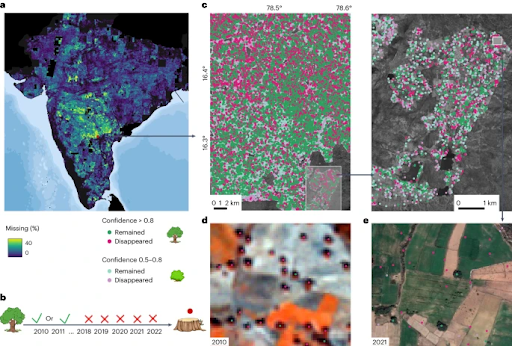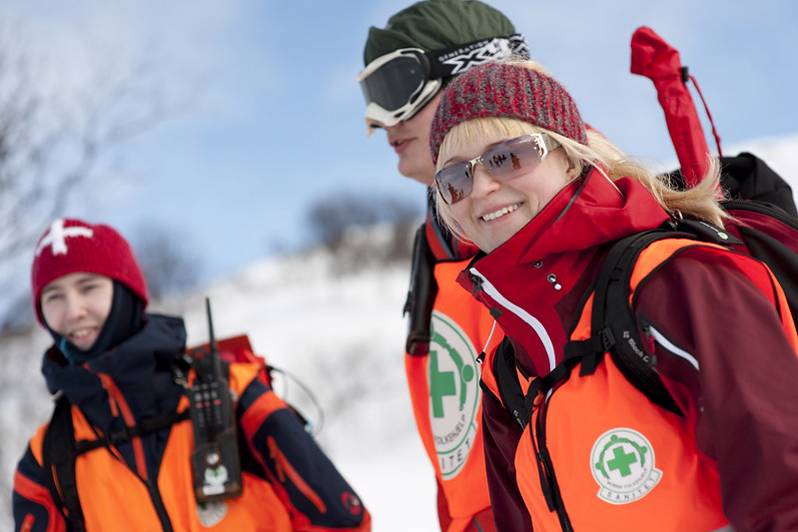Climate AI Nordics Newsletter, May 2025

Welcome to the Climate AI Nordics Newsletter May 2025.
Welcome to the May 2025 edition of the Climate AI Nordics Newsletter! Since our launch in October, our growing network now includes 167 members across the Nordic region—and 216 when counting our international affiliates. We're thrilled to see such momentum and invite you to help spread the word: if you know researchers working at the intersection of AI and climate change, encourage them to join us at climateainordics.com/join!
This month, we’re especially excited to highlight the success of the inaugural Nordic Workshop on AI for Climate Change, which brought together experts from across disciplines to spark collaboration on biodiversity, climate modeling, and the environmental impacts of AI itself. The workshop, held in Gothenburg, created new opportunities for future partnerships and set the stage for the next gathering in 2026, to be hosted by the University of Copenhagen and the Pioneer Centre for AI.
Also featured in this issue: new research documenting the alarming decline of large farmland trees in India, and a series of upcoming webinars and conferences addressing urgent questions around AI’s role in conservation, emergency communication, and causal inference. We hope this newsletter keeps you informed and inspired—and as always, please share your news with us so we can amplify your work to the broader community.
News
Severe decline in large farmland trees in India over the past decade

2025-05-27 This study investigates changes in agroforestry tree cover across India between 2010 and 2022 using high-resolution satellite imagery (RapidEye and PlanetScope) and extensive tree label datasets. The researchers applied deep learning techniques from object counting, using heatmap-based models that transformed discrete tree labels into continuous Gaussian representations for improved detection. Their findings reveal a significant decline in large farmland trees, with up to 11% loss nationally and as high as 50% in certain hotspot areas. From 2018 to 2022 alone, over 5 million trees were lost, reflecting a rapid transformation in India's agricultural landscapes. Interviews with farmers linked this decline to shifts in cultivation practices, particularly the intensification of cropping systems.
(Read more)
Inaugural Nordic Workshop on AI for Climate Change sparks collaboration and looks to the future

2025-05-20 The inaugural Nordic Workshop on AI for Climate Change in Gothenburg successfully united leading researchers, practitioners, and innovators, fostering lively interdisciplinary discussions and idea exchange on topics ranging from biodiversity monitoring to the environmental footprint of AI. Building on this enthusiastic and collaborative atmosphere, the community is now looking forward to future events, with the 2026 workshop already confirmed to be hosted by the University of Copenhagen and the Pioneer Centre for AI. This vital initiative continues to build a strong Nordic network dedicated to maximizing AI’s potential in addressing the urgent climate crisis.
(Read more)
Coming events
DIGeMERGE 2025 Conference

Event date: 2025-08-14.
DiGeMERGE 2025 is an international conference organized by researchers from the Digital Emergency Communication (DIGeMERGE) project. Funded under the CHANSE programme by the EU Commission (Horizon 2020) and Nordic research councils, DIGeMERGE explores the role of digital tools and platforms in public emergency communication across the Nordic countries. The conference provides a platform for researchers and students to present their work on the digital transformation of public emergency communication. Whether focusing on emergency management theories, risk analysis methods, or empirical case studies, participants will have the opportunity to share insights and engage with scholars from diverse disciplines, including the natural and social sciences.
(Read more)
Debiasing AI predictions for causal inference without fresh ground truth data

Event date: 2025-06-12.
Webinar with Markus Pettersson, Chalmers University of Technology. Machine learning models trained on Earth observation data, particularly satellite imagery, have recently shown impressive performance in predicting household-level wealth indices, potentially addressing chronic data scarcity in global development research. While these predictions exhibit strong predictive power, they inherently suffer from shrinkage toward the mean, resulting in attenuated estimates of causal treatment effects and thus limiting their utility in policy evaluations. Existing debiasing methods, such as Prediction-Powered Inference (PPI), require additional fresh ground-truth data at the downstream causal inference stage, severely restricting their applicability in data-poor environments. In this paper, we introduce and rigorously evaluate two novel correction methods—linear calibration correction and Tweedie's correction—that substantially reduce prediction bias without relying on newly collected labeled data. Our methods operate on out-of-sample predictions from pre-trained models, treating these models as black-box functions. Linear calibration corrects bias through a straightforward linear transformation derived from held-out calibration data, while Tweedie's correction leverages empirical Bayes principles to directly address shrinkage-induced biases by exploiting score functions derived from predicted outcomes. Through analytical exercises and experiments using Demographic and Health Survey (DHS) data, we demonstrate that both proposed methods outperform existing data-free approaches, can achieve significant reductions in attenuation bias and thus providing more accurate, actionable, and policy-relevant estimates. Our approach represents a generalizable, lightweight toolkit that enhances the reliability of causal inference when direct outcome measures are limited or unavailable.
(Read more)
High-stakes decisions from low-quality data: AI decision-making for conservation

Event date: 2025-06-19.
Webinar with Lily Xu, Columbia University. Like many of society's grand challenges, biodiversity conservation requires effectively allocating and managing our limited resources in the face of imperfect information. My research develops data-driven AI decision-making methods to do so, overcoming the messy data ubiquitous in these settings. Here, I’ll present technical advances in machine learning, reinforcement learning, and causal inference, addressing research questions that emerged from on-the-ground challenges in wildlife conservation. I’ll also discuss bridging the gap from research and practice, with anti-poaching field tests in Cambodia, field visits in Belize and Uganda, and large-scale deployment with SMART conservation software.
(Read more)
Recent events
The digital revolution of Earth system modelling

This event took place 2025-05-15. Webinar with Peter Dueben, European Centre for Medium-Range Weather Forecasts. This talk will outline three revolutions that happened in Earth system modelling in the past decades. The quiet revolution has leveraged better observations and more compute power to allow for constant improvements of prediction quality of the last decades, the digital revolution has enabled us to perform km-scale simulations on modern supercomputers that further increase the quality of our models, and the machine learning revolution has now shown that machine-learned weather models are competitive with physics based weather models for many forecast scores while being easier, smaller and cheaper. This talk will summarize the past developments, explain current challenges and opportunities, and outline how the future of Earth system modelling will look like. In particular, regarding machine-learned foundation models in a physical domain such as Earth system modelling.
(Read more)
Your news in the newsletter!
Make sure to share your work with us, by sending us an email ( contact@climateainordics.com), posting in our Slack or some other channel, and we’ll add it to the news feed! Take the chance of showcasing your work or your events to the community!
Also be sure to follow us on LinkedIn and BlueSky. Climate AI Nordics will have the most impact if you repost and like our stories!
Climate AI Nordics is a network of researchers working to harness AI in tackling the climate crisis through both mitigation and adaptation.
We promote the development of AI-based tools and optimization methods that support sustainable decision-making—helping reduce emissions, restore ecosystems, and build climate resilience.
